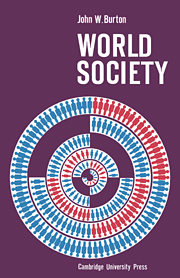4 - Conceptualizing and models
Published online by Cambridge University Press: 14 December 2009
Summary
While we may learn best by first having a knowledge of the whole, in practice, the existence of this knowledge depends upon the experiences of others who have been able – sometimes over many generations – to build up a total picture from their knowledge of parts and the relations of parts. A map is drawn by exploration of parts. The parts come first. This is the practical means of discovery. Similarly, in exploring human behaviour we, as persons, commence with the immediate social unit, and only later do we explore the interactions within and between larger societies. We discover relationships first within the family, then the kinship group, the school, the locality, the nation, and only much later in the wider environment. It is our day-to-day habit to move from local to wider knowledge, from discovery of parts to wholes. It is the way of learning in the absence of a total picture.
There are many aspects of human behaviour which cannot be taught or learned from the perspective of the whole because no one has yet managed to explore all the parts. We are still at the stage of discovery by experience. In some cases we may never complete the exploration, especially when what we are exploring is continually changing. The study of world society is of this nature. We require to know what world society as a whole looks like, what are the universal influences that determine it and the behaviour of its parts, what the reality of world society is in the sense that we can know reality by touching and testing.
- Type
- Chapter
- Information
- World Society , pp. 23 - 52Publisher: Cambridge University PressPrint publication year: 1972



